Filter by
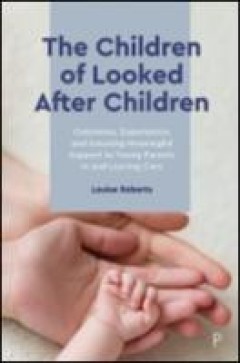
The children of looked after children : outcomes, experiences and ensuring me…
Based on groundbreaking original research, this book provides a comprehensive account of the issues surrounding pregnancy and parenthood for young people in and leaving care. Featuring the voices of care-experienced parents, together with reflections from practitioners, it offers valuable insights into the issues facing this group. Using qualitative data to explore why parenthood is such an imp…
- Edition
- -
- ISBN/ISSN
- 9781447354307
- Collation
- viii, 163 p. : ill.
- Series Title
- -
- Call Number
- 362.732 ROB t

Academia in transformation : scholars facing the Arab uprisings
Popular uprisings in the Middle East and North Africa (MENA) have had a deep impact, not only on the societies and political structures in the respective countries there, but also on different academic disciplines. The events that started in 2010 in Tunisia have altered academic terminology, contributed to a shift in study focus and sometimes challenged dominant theoretical approaches. The book…
- Edition
- -
- ISBN/ISSN
- 9783845274348
- Collation
- 223 p.
- Series Title
- -
- Call Number
- 378.56 KOH a
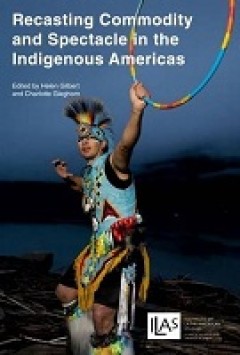
Recasting commodity and spectacle in the indigenous Americas
Indigenous artists frequently voice concerns over the commodification of their cultures, a process acutely felt by those living with the consequences of colonialism. This timely book, which features colour illustrations throughout, examines the ways in which contemporary indigenous peoples in different parts of the Americas have harnessed performance practices to resist imposed stereotypes and …
- Edition
- -
- ISBN/ISSN
- 9781908857088
- Collation
- ix, 273p.
- Series Title
- -
- Call Number
- 700.98 REC g

Some ways of making nothing : apophatic apparatuses in contemporary art
"What if all works of art were better understood as functioning apparatuses, entangling their human audiences in experiences of becoming? What if certain works of art were even able to throw the brakes on becoming altogether, making nothings rather than somethings? What would be the ethical value of making nothing, of stalling becoming; and how might such nothings even be made? Some Ways of Mak…
- Edition
- -
- ISBN/ISSN
- 9781953035387
- Collation
- xiii, 441 p.
- Series Title
- -
- Call Number
- 701 CLO s
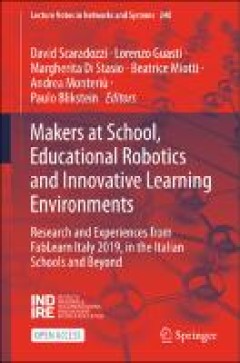
Makers at school, educational robotics and innovative learning environments :…
This open access book contains observations, outlines, and analyses of educational robotics methodologies and activities, and developments in the field of educational robotics emerging from the findings presented at FabLearn Italy 2019, the international conference that brought together researchers, teachers, educators and practitioners to discuss the principles of Making and educational roboti…
- Edition
- -
- ISBN/ISSN
- 9783030770402
- Collation
- xvii, 376 p. : ill.
- Series Title
- Lecture Notes in Networks and Systems volume 240
- Call Number
- 629.892071 SCA m
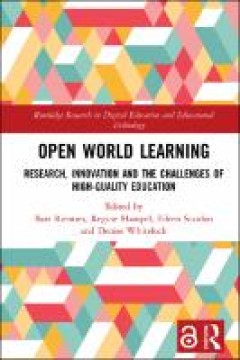
Open world learning : research, innovation and the challenges of high-quality…
This book provides state-of-the-art contemporary research insights into key applications and processes in open world learning. Open world learning seeks to understand access to education, structures, and the presence of dialogue and support systems. It explores how the application of open world and educational technologies can be used to create opportunities for open and high-quality education.…
- Edition
- -
- ISBN/ISSN
- 9781003177098
- Collation
- XVIII, 280 p.
- Series Title
- Routledge Research in Digital Education and Educational Technology
- Call Number
- 374.4 OPE o
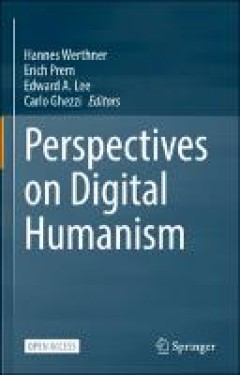
Perspectives on digital humanism
This open access book aims to set an agenda for research and action in the field of Digital Humanism through short essays written by selected thinkers from a variety of disciplines, including computer science, philosophy, education, law, economics, history, anthropology, political science, and sociology. This initiative emerged from the Vienna Manifesto on Digital Humanism and the associated le…
- Edition
- -
- ISBN/ISSN
- 9783030861445
- Collation
- xviii, 342 p. : ill.
- Series Title
- -
- Call Number
- 004 WER p
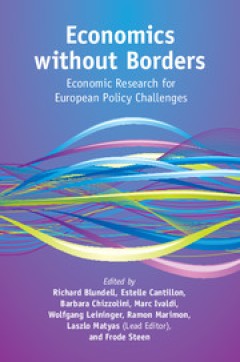
Economics without borders : economic research for European policy challenges
If treated as a single economy, the European Union is the largest in the world, with an estimated GDP of over 14 trillion euros. Despite its size, European economic policy has often lagged behind the rest of the world in its ability to generate growth and innovation. Much of the European economic research itself often trails behind that of the USA, which sets much of the agenda in mainstream ec…
- Edition
- -
- ISBN/ISSN
- 9781316636398
- Collation
- xxvi, 666 p. ; ill
- Series Title
- -
- Call Number
- 330.94 BLU e

Access to medicines and vaccines : implementing flexibilities under intellect…
This open access book is the outcome of a Global Forum on Innovation, Intellectual Property and Access to Medicines held in December 2019 at the Max Plank Instititute in Munich, organised by the South Centre and the Max Plank Institute. The academics and experts from international organisations participating have contributed chapters to this book. The book is for policy makers (in Ministries of…
- Edition
- -
- ISBN/ISSN
- 9783030831141
- Collation
- x, 369 p. : ill.
- Series Title
- -
- Call Number
- 346.0486 COR a
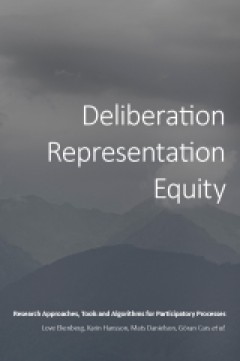
Deliberation, representation, equity: research approaches, tools and algorith…
What can we learn about the development of public interaction in e-democracy from a drama delivered by mobile headphones to an audience standing around a shopping center in a Stockholm suburb? In democratic societies there is widespread acknowledgment of the need to incorporate citizens’ input in decision-making processes in more or less structured ways. But participatory decision making is …
- Edition
- -
- ISBN/ISSN
- 9781783743056
- Collation
- 376 p. : ill. : ind. ; 24 cm
- Series Title
- -
- Call Number
- 323.042 DEL d
 Computer Science, Information & General Works
Computer Science, Information & General Works  Philosophy & Psychology
Philosophy & Psychology  Religion
Religion  Social Sciences
Social Sciences  Language
Language  Pure Science
Pure Science  Applied Sciences
Applied Sciences  Art & Recreation
Art & Recreation  Literature
Literature  History & Geography
History & Geography